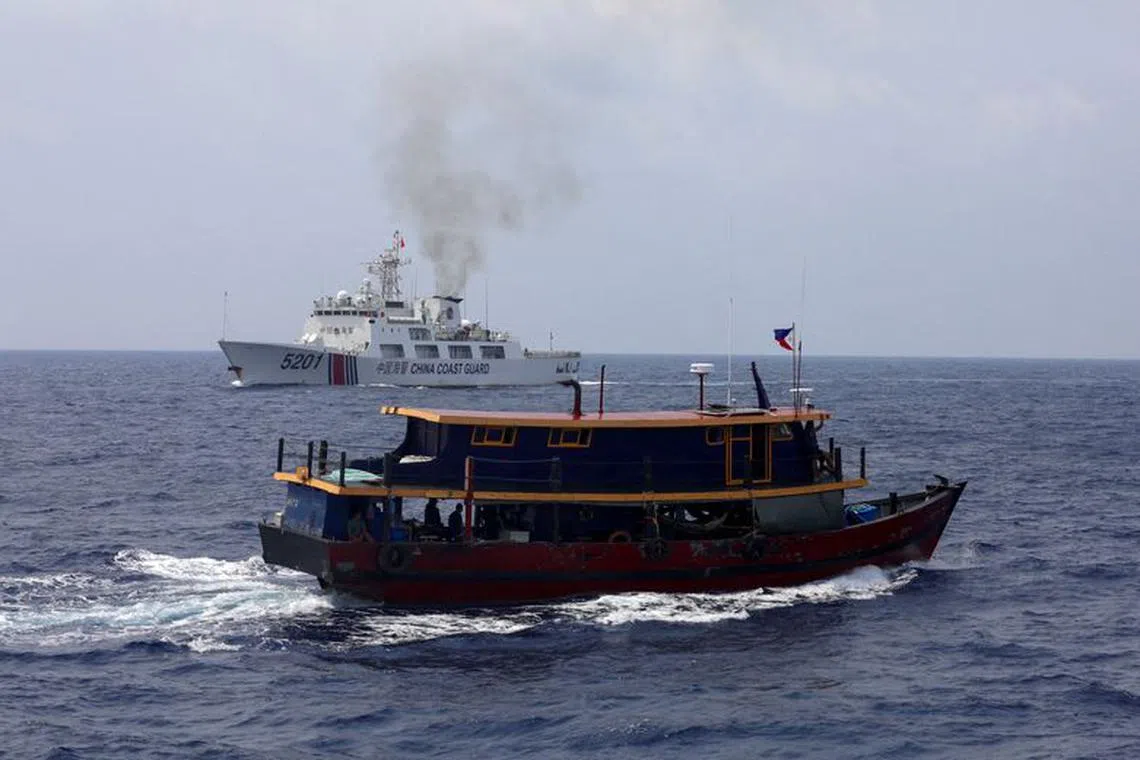Leaders of Philippines, Indonesia hold talks on South China Sea, Asean
Sign up now: Get insights on Asia's fast-moving developments

A Philippine supply boat sails near a Chinese coast guard ship during a resupply mission for Filipino troops stationed at a grounded warship in the South China Sea on Oct 4, 2023.
FILE PHOTO: REUTERS
Follow topic:
MANILA – The leaders of the Philippines and Indonesia met in Manila on Jan 10 to discuss developments in the South China Sea and efforts to build closer ties between South-east Asian nations, among a range of issues.
The meeting comes after Indonesian Foreign Minister Retno Marsudi said on Jan 9 that her country is ready to work with other South-east Asian nations to finalise a long-delayed code of conduct
China lays claim to almost the entire waterway, a conduit for more than US$3 trillion (S$4 trillion) in annual maritime commerce, but its claims overlap those of Brunei, Indonesia, Malaysia, the Philippines and Vietnam, all of whom are members of Asean.
“President Widodo and I had a fruitful and honest discussion on regional events of mutual interests,” Philippine President Ferdinand Marcos Jr, who hosted his Indonesian counterpart Joko Widodo, told a joint press conference after the meeting.
These included issues regarding the South China Sea, as well as ways to build cooperation among members of Asean, he added, without giving details.
The neighbours also signed a pact on energy ties to aid cooperation between their business sectors during periods of critical supply constraints on fuels such as coal and liquefied natural gas.
In addition, they agreed to beef up defence ties and existing pacts on border cooperation, Mr Widodo said.
“We agreed to… expedite revision of joint border patrol and crossing agreements, (and) also to strengthen the defence cooperation, including on military hardware,” he said.
A 2014 pact between the archipelago nations demarcated their maritime borders in the overlapping exclusive economic zones of the Mindanao and Celebes seas, while a 1975 border patrol agreement aims to combat crimes at sea, from piracy to smuggling.
For years, Asean and China have been trying to set up a framework to negotiate the code of conduct, a plan dating from 2002.
But progress has been slow despite commitments by all parties to advance and expedite the process.
In 2016, the Permanent Court of Arbitration in The Hague said China’s claims had no legal basis
Tension has flared in recent months between China and the Philippines as they have traded accusations

